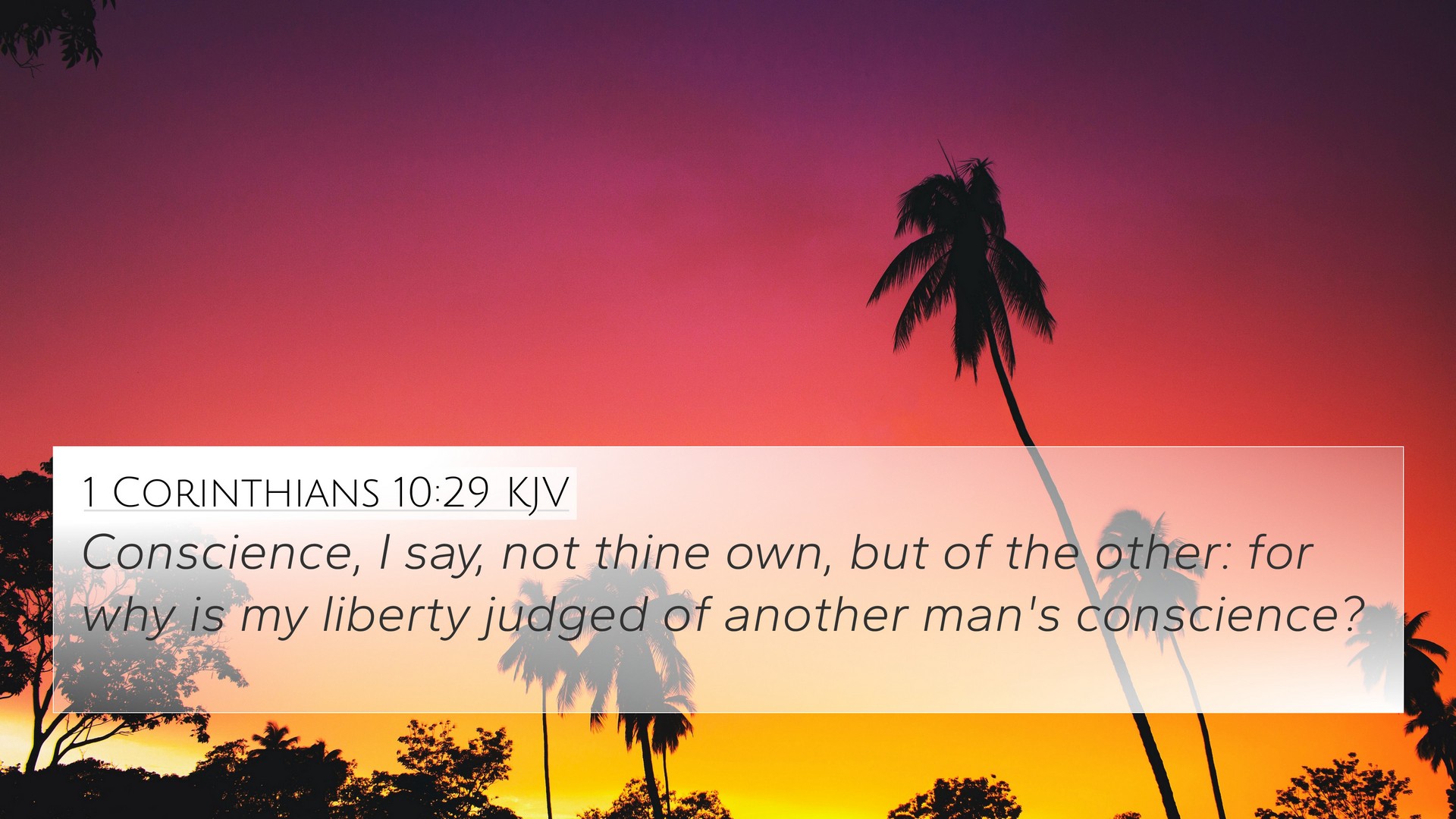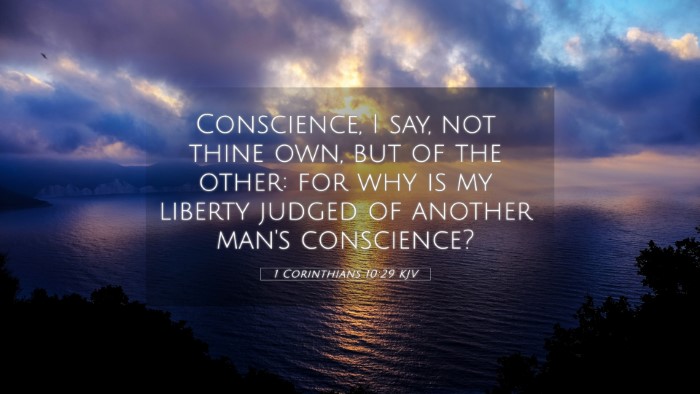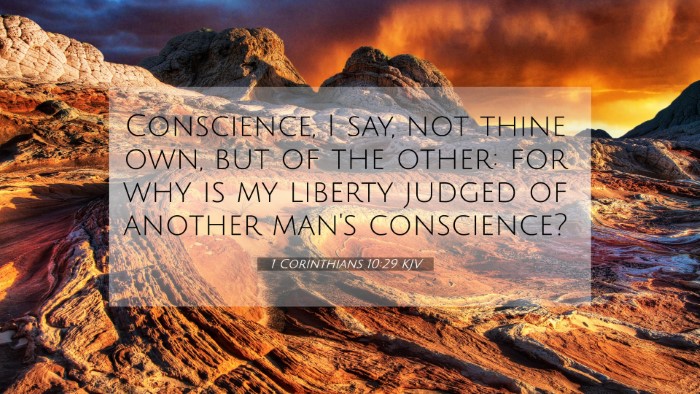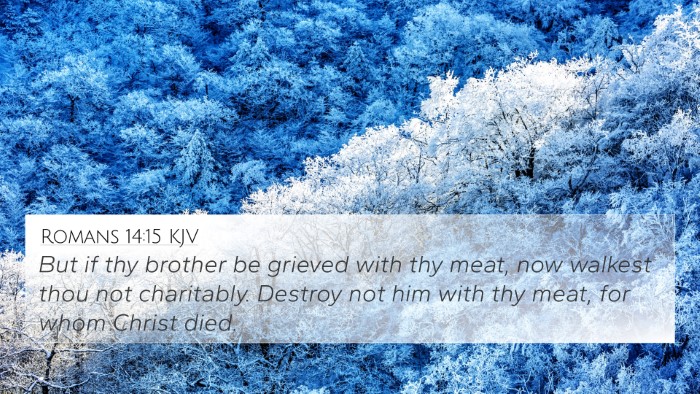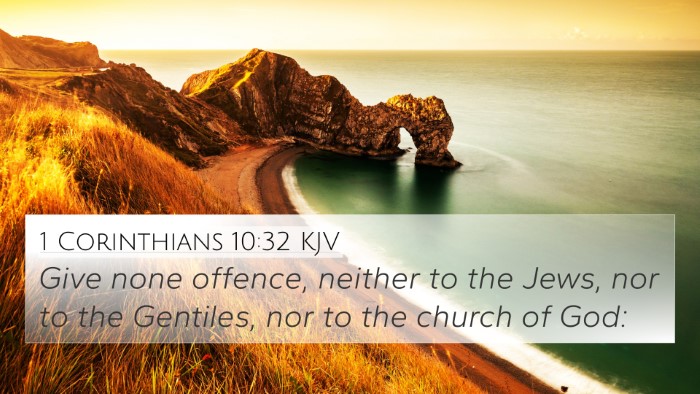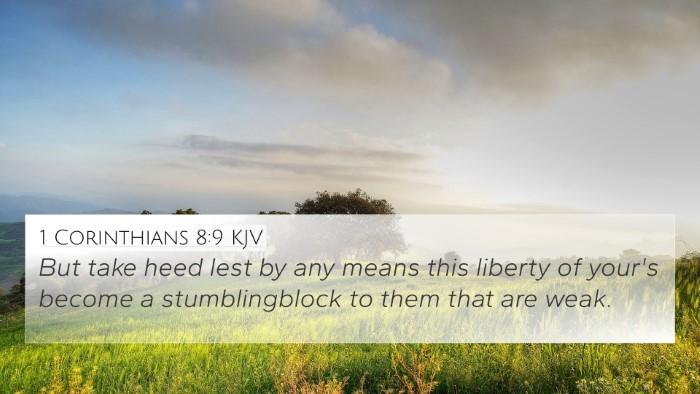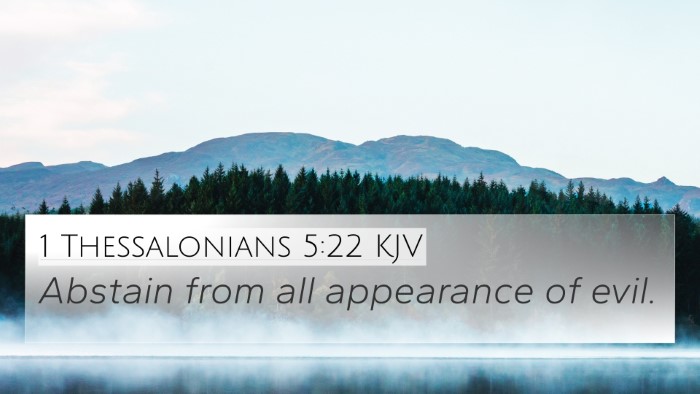Understanding 1 Corinthians 10:29
1 Corinthians 10:29 states: "Conscience, I say, not yours, but that of the other. For why is my liberty judged by another man's conscience?" This verse invites contemplation on the relationship between personal liberty and the sensitivities of others regarding their conscience.
Overview of the Verse
This passage is part of Apostle Paul's discourse on the appropriate use of Christian freedom, particularly in the context of eating food offered to idols and the implications it has on fellow believers. Paul stresses the importance of considering the conscience of others when exercising one's own liberties in Christ.
Commentary Insights
Matthew Henry's Commentary
Matthew Henry emphasizes that Paul's discourse serves as a reminder that while Christians have liberty in Christ, this freedom must be exercised with a sense of responsibility towards others. He notes that actions that might be permissible for one person could harm or stumble another if they are not understanding or mature in their faith.
Albert Barnes' Notes
Albert Barnes indicates that this verse highlights the significance of conscience in Christian life and community. He explains that one's liberty should not be a cause for contention or alarm among fellow believers, and warns against the temptations that arise when one's actions are not aligned with the well-being of the Christian community.
Adam Clarke's Commentary
Adam Clarke provides insight into the notion that personal conscience can differ greatly among individuals. He remarks on the necessity for Christians to have regard for the weaker brother, suggesting that spiritual liberty should never come at the expense of another's faith or conscience.
Key Themes in 1 Corinthians 10:29
- Christian Liberty: Understanding the balance between personal freedom and communal responsibility.
- Conscience: The moral compass that guides believers in their actions towards God and one another.
- Community Sensitivity: The need for awareness of how one's actions affect the faith of others.
- Love and Edification: Actions taken in love should aim to build others up rather than lead them astray.
Cross References for Deeper Study
To enrich your understanding, consider these cross references that connect with the themes of 1 Corinthians 10:29:
- 1 Corinthians 9:19-23: Discusses the idea of becoming all things to all men to win souls.
- Romans 14:14: Paul speaks about the dietary laws and the sanctity of conscience.
- Galatians 5:13: Freedom in Christ should not be used as an occasion for the flesh.
- Philippians 2:4: Encourages considering the interests of others above one's own.
- 1 Thessalonians 5:14: Instruction to encourage the fainthearted and help the weak.
- 1 John 3:19-20: Discusses the confidence we should have before God and the role of our hearts.
- Titus 1:15: The purity of conscience and its importance in believers' lives.
Practical Applications
The implications of 1 Corinthians 10:29 extend into practical aspects of community living and the importance of unity within the body of Christ. Here are some applications to consider:
- Engage in open discussions about personal beliefs and practices within your community to foster understanding.
- Consider the impact of your choices on others, especially the more vulnerable members of your faith group.
- Practice love and patience in situations of disagreement regarding liberties in faith.
- Seek opportunities to educate others about the broader context of liberty in Christ without causing offense.
Concluding Thoughts
1 Corinthians 10:29 calls believers to a higher standard of living—one that prioritizes the spiritual well-being of others over mere personal freedom. As we grow in faith, let us always strive for a balance between exercising our liberties and building up the community of believers in love.
